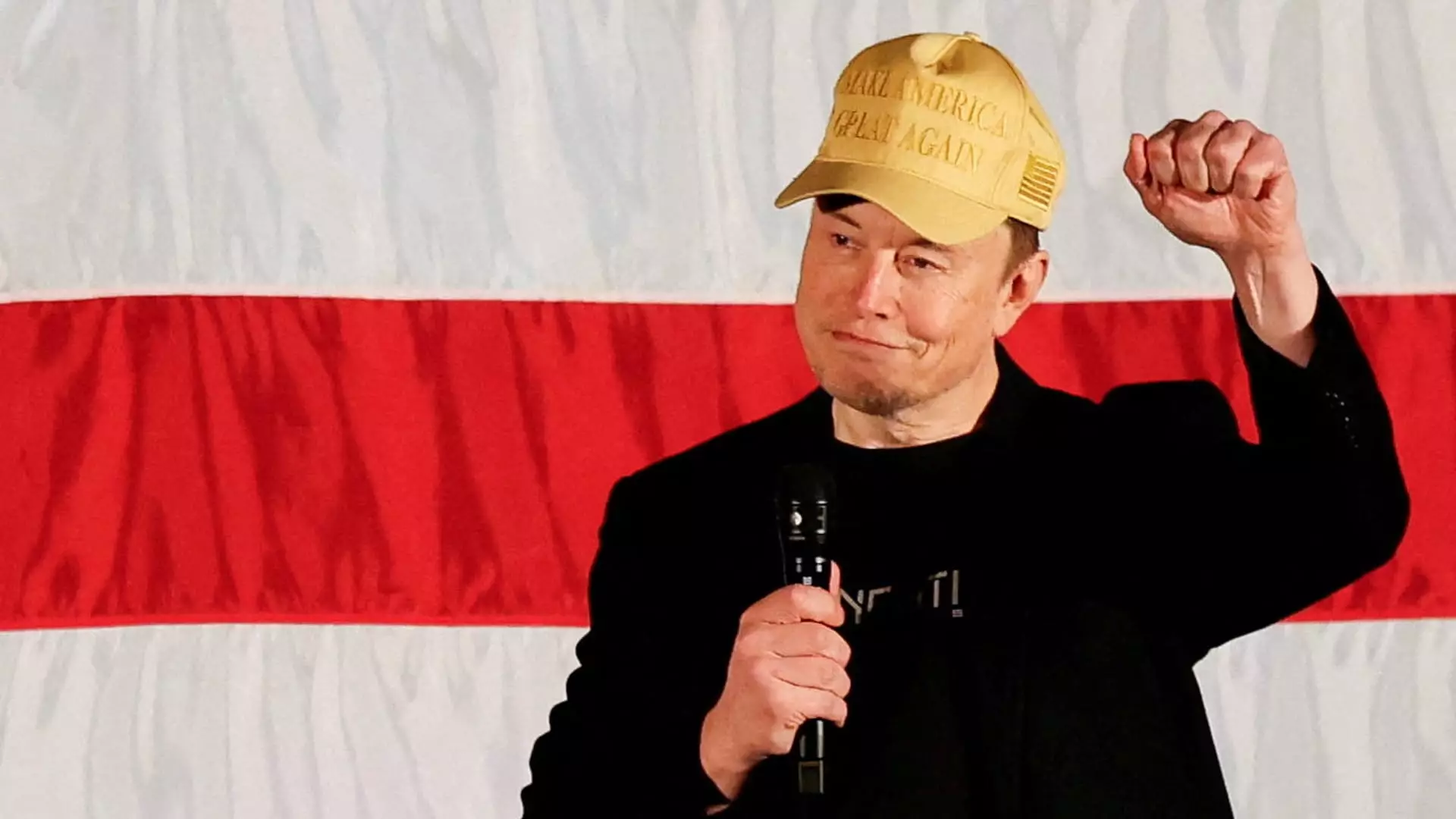In a striking turn of events during a pro-Trump political action committee event in Harrisburg, Pennsylvania, tech mogul Elon Musk made headlines by announcing a plan to distribute $1 million daily to registered voters who sign a petition in his support. The controversial initiative, aimed at boosting voter turnout in battleground states, has sparked intense discussion regarding the ethical implications and legal ramifications of incentivizing electoral participation in this manner.
Musk, with a colossal net worth nearing $250 billion and at the helm of industry giants Tesla and SpaceX, expressed his belief that injecting such significant financial rewards into the electoral process would serve as a motivation for engagement in the political system. He described the initiative as “fun,” portraying it as a useful allocation of wealth aimed at enhancing civic involvement.
Legal Gray Area: An Election Law Violation?
However, this seemingly harmless attempt to encourage voter registration raises complicated questions surrounding federal election laws. Respected legal analysts, like Rick Hasen, a law professor at UCLA, have cited Musk’s initiative as potentially violating legal stipulations that prohibit the exchange of monetary incentives for voting. Such actions could result in severe consequences, including hefty fines and potential imprisonment for violating federal election statutes.
Hasen’s critique emphasizes the significance of maintaining the integrity of the electoral process. “Certain things in this country can be sold, and certain things we have decided should not be for sale,” he stated, underscoring that financial manipulation in politics undermines democratic values. It highlights a growing concern over the influence of wealthy individuals and corporations on an electoral system that should ideally be free from such distortions.
Musk’s decision to focus his campaign efforts on Pennsylvania as the “linchpin” of the upcoming elections is noteworthy. Given the state’s pivotal role in determining the outcome, it’s plausible to consider this initiative a carefully strategized play to galvanize interest and sway undecided voters. By using financial rewards as a lure, Musk may be attempting to leverage his status and resources in a manner that he perceives could favor Trump’s campaign.
Yet, the dilemma persists: is it ethical for individuals, especially those of Musk’s financial caliber, to manipulate political engagement through cash incentives? Critics argue that wealth should not dictate democratic participation, and every citizen’s vote should carry equal weight without the overshadowing influence of economic power.
As with many of Musk’s public statements and acts, the reception to this initiative has been mixed. Some view his actions as a daring approach to increase voter turnout among those who may otherwise remain apathetic to the electoral process. For them, the idea of turning out to vote for a chance at $1 million can appear enticing and innovative.
Conversely, many critics perceive Musk’s tactic as blatant self-interest designed to fortify Trump’s political aspirations at the expense of electoral integrity. The notion of incentivized voting might alienate individuals who feel disenchanted by the political climate and skeptical of motives behind such proposals.
Throughout the event, Musk didn’t shy away from controversial commentary that has long characterized his public persona. From calling certain government agencies ineffective and unnecessary to reiterating debunked claims about voter fraud, his remarks have ignited discussions on broader themes of governance and regulatory contexts. Musk’s public disdain for the Biden administration, particularly in light of his perceived neglect in favor of electric automotive advancements, serves to emphasize the ideological divide shaping his support for Trump.
Furthermore, Musk’s penchant for provocative statements—including remarks that have raised concern from the Secret Service due to their nature—adds layers of complexity to his public image. Whether regarded as a visionary or a provocateur, there’s little doubt that Musk navigates the political landscape in a manner that is both unconventional and contentious.
The Road Ahead: What This Means for Voting
As the deadline for petition signatures looms, attention will turn to whether Musk’s initiative generates the desired effects in terms of voter engagement, and, significantly, how electoral bodies will respond to the legal challenges it poses. Will this prominent figure’s financial maneuver redefine aspects of voter mobilization, or does it illustrate the questionable intersection of wealth and electoral participation?
While Musk’s initiative could arguably engage more voters, the broader implications of ethically interfacing wealth and democracy are profound. As the political landscape shifts, the necessity for reinforcing fair electoral practices remains vital, posing the question: how can we ensure that democracy remains truly for the people, by the people, irrespective of personal fortunes?


Leave a Reply